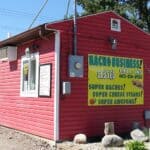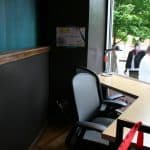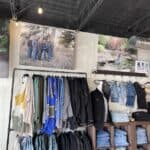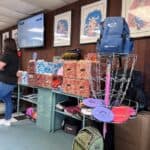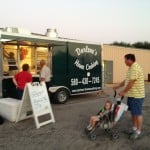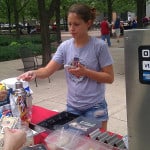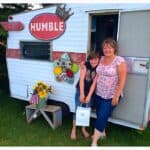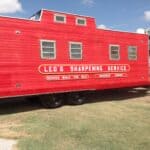Part of our Global Entrepreneurship Week celebration Nov 13-19, 2023.
Find this and other Global Entrepreneurship Week events listed on the official calendar at GenGlobal.
The old way to go into business
Imagine all the work that goes into starting a new business. You need to be a good business manager, a marketing guru, and a financial wizard. You need to have great credit, have plenty of your own money, and you better know the right people. You need to have all your ducks in a row.
It takes a lot of time, money and work just to get into business.
The new way is to start small
Now imagine building some steps in between. If you could buy just a few products and test them by renting a booth at a festival, you’d learn more about what works. You could run a temporary business inside another business for a month or two for more testing. You could outfit a travel trailer as a store and set up a circuit of small towns, building a customer base. If something doesn’t work, you can fix it and try again. Now jumping up to starting a traditional store doesn’t seem as hard. You’ve learned what people want to buy. You’ve established relationships with suppliers. You’ve gained a loyal following. All those smaller steps lift you up closer to jumping over that hurdle of starting a traditional business. And if you miss a jump at a smaller step, it’s easier to recover and try something new.
That’s the purpose of the innovative rural business models. They put you in a much better position to succeed, or to fail in a manageable way. It cuts time and money off the process of getting into business.
You don’t need to have all your ducks in a row, as long as you can find one of your ducks and get started.
The Innovative Rural Business Models
First is TINY
- Rather than expect your business to start full-sized, it’s much easier to start something small. With tiny retail shops, tiny food kiosks, tiny industrial spaces, tiny offices, and tiny artist studios, starting small takes fewer resources, and puts your fragile new entrepreneur idea at less risk from big failures.
- Tiny sheds make for great businesses, including Nacho Business! Photo by Becky McCray
- Artists can set up in tiny spaces like sheds. Photo CC by Jeffrey Grandy
- Turn any tiny corner inside a business into a tiny office. Photo via The Smoffice.
Second is TEMPORARY
- Rather than expect to start with a permanent business, try a pop-up. A temporary business will give you immediate feedback on whether there’s even a market for this idea.
- Pop ups on an empty lot, with a coffee trailer as the anchor. Photo by Becky McCray.
- Clear a tiny space, that’s enough for pop-ups. Photo by Greg Lakes
- Close the streets! The pop-ups are coming! Photo courtesy of Waynoka Chamber of Commerce.
Third is TOGETHER
- Rather than sink or swim on your own, start thinking about how to nurture your new business inside an existing business. This can be retailers splitting a space, or a startup using an extra office desk in a service business, or even nurturing a tiny maker inside of an existing manufacturing business. Small towns have fewer usable buildings, so we have to make the best use of every usable building we have.
- You don’t need much to start small. Even one square foot of space may be enough. Photo by Becky McCray.
- A local furniture store hosts two temporary businesses for a special shopping event, combining business-in-a-business and pop-ups to benefit everyone. Photo by Becky McCray.
- Webster City, Iowa, bakery with a retail pop-up business tucked into a corner. Photo by Becky McCray.
- A photographer displays inside a clothing store. Photo by Deb Brown
- Best place to get your disc golf equipment is at the barber shop! Photo by Deb Brown
- Avon MN coffee shop, Gathering Grounds displays local art on the walls. Photo by Deb Brown
Fourth is TRAVELING
- You’re used to seeing food businesses operating out of trucks and trailers, but this idea has expanded. Rather than depending on the market in one town only, innovative businesses are hitting the road to round up customers. Retail stores and boutiques now commonly operate from a truck or trailer. Service businesses are using this model, too: wedding planners, financial consultants, and dog groomers.
- Food trucks may be the first mobile businesses you think of. Photo by Becky McCray
- Food carts are mobile businesses, too. Photo by Becky McCray
- Retail can also go mobile, like this trailer at the lake. Photo courtesy of Katy Kassian
- Even a booth in your front yard counts as a way to start small and go mobile. Photo courtesy of Shawn Anderson
- Services can be mobile, like this awesome mobile pet grooming. Photo via Gary Stewart
- Leo sharpens tools and more from his mobile business. Photo courtesy of Sue
Share your own story
You can add your own story, too. What have you learned about rural small business? What’s working in your own business and your own community? What have you learned to avoid?
Leave a comment or use our contact form to share, and I’ll reach out to follow up.
This is global. Stories from anywhere rural are welcome.

